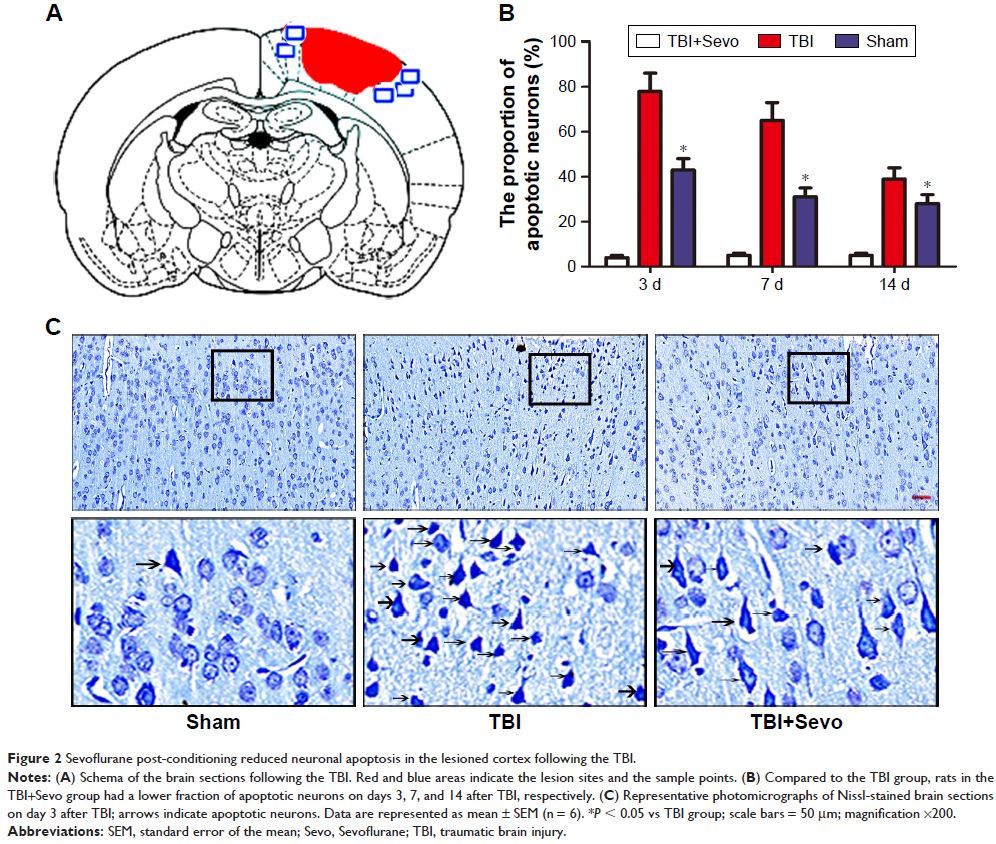108985
论文已发表
注册即可获取德孚的最新动态
IF 收录期刊
- 3.4 Breast Cancer (Dove Med Press)
- 3.2 Clin Epidemiol
- 2.6 Cancer Manag Res
- 2.9 Infect Drug Resist
- 3.7 Clin Interv Aging
- 5.1 Drug Des Dev Ther
- 3.1 Int J Chronic Obstr
- 6.6 Int J Nanomed
- 2.6 Int J Women's Health
- 2.9 Neuropsych Dis Treat
- 2.8 OncoTargets Ther
- 2.0 Patient Prefer Adher
- 2.2 Ther Clin Risk Manag
- 2.5 J Pain Res
- 3.0 Diabet Metab Synd Ob
- 3.2 Psychol Res Behav Ma
- 3.4 Nat Sci Sleep
- 1.8 Pharmgenomics Pers Med
- 2.0 Risk Manag Healthc Policy
- 4.1 J Inflamm Res
- 2.0 Int J Gen Med
- 3.4 J Hepatocell Carcinoma
- 3.0 J Asthma Allergy
- 2.2 Clin Cosmet Investig Dermatol
- 2.4 J Multidiscip Healthc

七氟醚后处理可通过 PI3K/AKT 信号通路促进自噬减缓创伤性脑损伤诱导的神经元凋亡
Authors He H, Liu W, Zhou Y, Liu Y, Weng P, Li Y, Fu H
Received 28 November 2017
Accepted for publication 24 January 2018
Published 23 March 2018 Volume 2018:12 Pages 629—638
DOI https://doi.org/10.2147/DDDT.S158313
Checked for plagiarism Yes
Review by Single-blind
Peer reviewers approved by Dr Palas Chanda
Peer reviewer comments 2
Editor who approved publication: Dr Qiongyu Guo
Background: Sevoflurane post-conditioning exerts nerve-protective effects through
inhibiting caspase-dependent neuronal apoptosis after a traumatic brain injury
(TBI). Autophagy that is induced by the endoplasmic reticulum stress plays an
important role in the secondary neurological dysfunction after a TBI. However,
the relationship between autophagy and caspase-dependent apoptosis as well as
the underlying nerve protection mechanism that occurs with sevoflurane
post-conditioning following a TBI remains unclear.
Methods: The Feeney TBI model was used to induce brain injury in rats. Evaluation
of the modified neurological severity scores, measurement of brain water
content, Nissl staining, and terminal deoxynucleotidyl transferase dUTP nick
end labeling assay were used to determine the neuroprotective effects of the
sevoflurane post-conditioning. Both immunofluorescence and Western blot
analyses were used to detect the expression of autophagy-related proteins
microtubule-associated protein 1 light chain 3-II and Beclin-1, pro-apoptotic
factors, as well as the activation of the phosphatidylinositide
3-kinase/protein kinase B (PI3K/AKT) signaling pathway within the lesioned
cortex.
Results: Autophagy and neuronal apoptosis were activated in the lesioned
cortex following the TBI. Sevoflurane post-conditioning enhanced early
autophagy, suppressed neuronal apoptosis, and alleviated brain edema, which
improved nerve function after a TBI (all P <
0.05). Sevoflurane post-conditioning induced the activation of PI3K/AKT
signaling after the TBI (P < 0.05).
The neuroprotective effects of sevoflurane post-conditioning were reversed
through the autophagy inhibitor 3-methyladenine treatment.
Conclusion: Neuronal apoptosis and the activation of autophagy were involved
in the secondary neurological injury following a TBI. Sevoflurane
post-conditioning weakened the TBI-induced neuronal apoptosis by regulating
autophagy via PI3K/AKT signaling.
Keywords: traumatic brain injury, sevoflurane post-conditioning, cell
apoptosis, autophagy, PI3K/AKT signaling pathway
